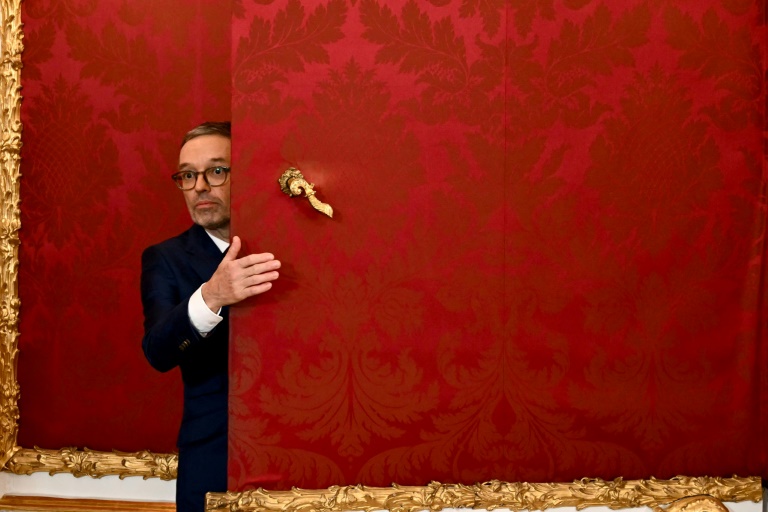If he comes to power, sharp-tongued, far-right leader Herbert Kickl will be contemporary Austria’s most controversial chancellor.
His Freedom Party (FPOe), which topped national polls for the first time ever in September, last week began negotiations with the conservatives to form a government.
Although the FPOe has already been in power several times, it would be the first time they would lead the government — with the radical Kickl, who took over the scandal-tainted party in 2021 and revitalised it, as chancellor.
Kickl has called the talks a “litmus test”, urging the conservatives — who until earlier this month had been trying to form a government without the FPOe — to avoid “games” and “tricks”.
The FPOe currently stand at more than 37 percent in opinion polls, up from the almost 29 percent they got in September and well ahead of all other parties, including the incumbent runner-up conservatives.
The FPOe and the conservatives said on Monday they had already agreed on how to tackle the country’s high budget deficit at talks held over the weekend.
The negotiations took place behind closed doors, at an undisclosed location.
– ‘People’s chancellor’ –
Before taking over the party, the 56-year-old Kickl, a marathon runner and climber, had made his career largely behind the scenes as its longtime ideologue.
As its leader, he has skillfully tapped into voter anxieties over the Covid pandemic, inflation and the Ukraine war, including criticising European Union sanctions against Moscow.
Kickl’s bland, unassuming image contrasts with his virulent rhetoric.
He condemns critics and called President Alexander Van der Bellen, a former Greens leader, a “senile mummy”.
He also frequently employs terms reminiscent of the troubled past of the party, founded by former Nazis in the 1950s.
Those include calling himself the future “Volkskanzler” — the people’s chancellor — as Hitler was termed in the 1930s.
Tens of thousands protested in Vienna on Thursday against the FPOe-led talks, amid concerns Kickl — who has previously said “politics takes precedence over the law” — would erode the rule of law as chancellor.
Kickl denies he uses Nazi references, and in a Facebook posting over the weekend, he insisted “the rule of law, fundamental rights, freedom of opinion, free media, the fight against anti-Semitism” were “a natural foundation of our political work”.
But the far-right leader has never made a secret of his closeness to extremist groups, expressing his support for the Identitarian Movement as early as 2016.
He has also espoused the far-right concept of “remigration” — wanting to expel people of non-European ethnic backgrounds, including Austrian nationals, deemed to have failed to integrate.
“Supporting an anti-elite and xenophobic party has perhaps become socially acceptable” almost everywhere in the world, said Christian Rainer, the former chief editor of the weekly Profil.
But Kickl makes French far-right leader Marine Le Pen “look like Mother Teresa”, he said.
Kickl has avoided debates and interviews, denouncing the media for their “lack of objectivity”.
Instead he has relied on social media to spread his views.
– Secret service raid –
His past time in government has included some controversies.
During his time as interior minister in 2018, the authorities raided the country’s intelligence service, seriously damaging the service’s reputation among its international partners.
In April last year, prosecutors launched a corruption investigation against him, amid allegations that he embezzled public money to pay for lucrative adverts in the media, in return for receiving favourable coverage.
In December, parliament approved a prosecutors’ request to lift his immunity so he can be questioned for allegedly providing false testimony.
But voters have warmed to Kickl’s tidy and trustworthy demeanour.
In contrast to his flamboyant predecessors Joerg Haider and then Heinz-Christian Strache — who stepped back after a spectacular graft scandal — Kickl has maintained a low profile.
Born in Villach, the capital of the southern state of Carinthia, he studied philosophy, history, communication and political science in Vienna — but left the courses before finishing — and started working for the FPOe in 1995.
bg/jza
